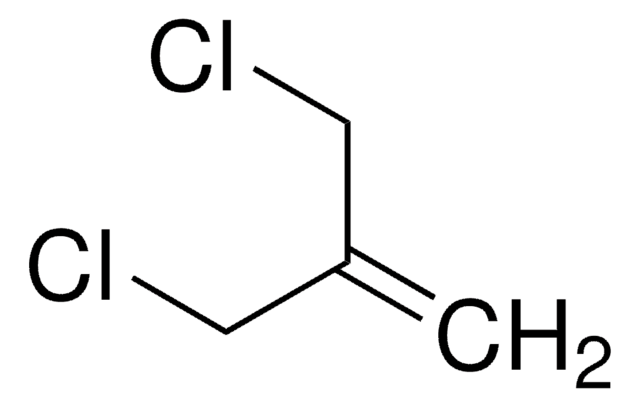291587
Natriumamid
50 wt. % suspension in toluene
About This Item
Empfohlene Produkte
Konzentration
50 wt. % suspension in toluene
bp
400 °C (lit.)
mp (Schmelzpunkt)
210 °C (lit.)
SMILES String
N[Na]
InChI
1S/H2N.Na/h1H2;/q-1;+1
InChIKey
ODZPKZBBUMBTMG-UHFFFAOYSA-N
Suchen Sie nach ähnlichen Produkten? Aufrufen Leitfaden zum Produktvergleich
Allgemeine Beschreibung
Anwendung
Synthesis of allylic amines and amides
Synthesis of antibacterials
Aggregative activation and heterocyclic chemistry
Phenylation with diphenyliodonium chloride
Signalwort
Danger
Gefahreneinstufungen
Aquatic Chronic 3 - Asp. Tox. 1 - Eye Dam. 1 - Flam. Liq. 2 - Repr. 2 - Skin Corr. 1B - STOT RE 2 - STOT SE 3 - Water-react 2
Zielorgane
Central nervous system
Zusätzliche Gefahrenhinweise
Lagerklassenschlüssel
4.3 - Hazardous materials which set free flammable gases upon contact with water
WGK
WGK 3
Flammpunkt (°F)
39.2 °F - closed cup
Flammpunkt (°C)
4 °C - closed cup
Persönliche Schutzausrüstung
Faceshields, Gloves, Goggles, type ABEK (EN14387) respirator filter
Analysenzertifikate (COA)
Suchen Sie nach Analysenzertifikate (COA), indem Sie die Lot-/Chargennummer des Produkts eingeben. Lot- und Chargennummern sind auf dem Produktetikett hinter den Wörtern ‘Lot’ oder ‘Batch’ (Lot oder Charge) zu finden.
Besitzen Sie dieses Produkt bereits?
In der Dokumentenbibliothek finden Sie die Dokumentation zu den Produkten, die Sie kürzlich erworben haben.
Kunden haben sich ebenfalls angesehen
Unser Team von Wissenschaftlern verfügt über Erfahrung in allen Forschungsbereichen einschließlich Life Science, Materialwissenschaften, chemischer Synthese, Chromatographie, Analytik und vielen mehr..
Setzen Sie sich mit dem technischen Dienst in Verbindung.













